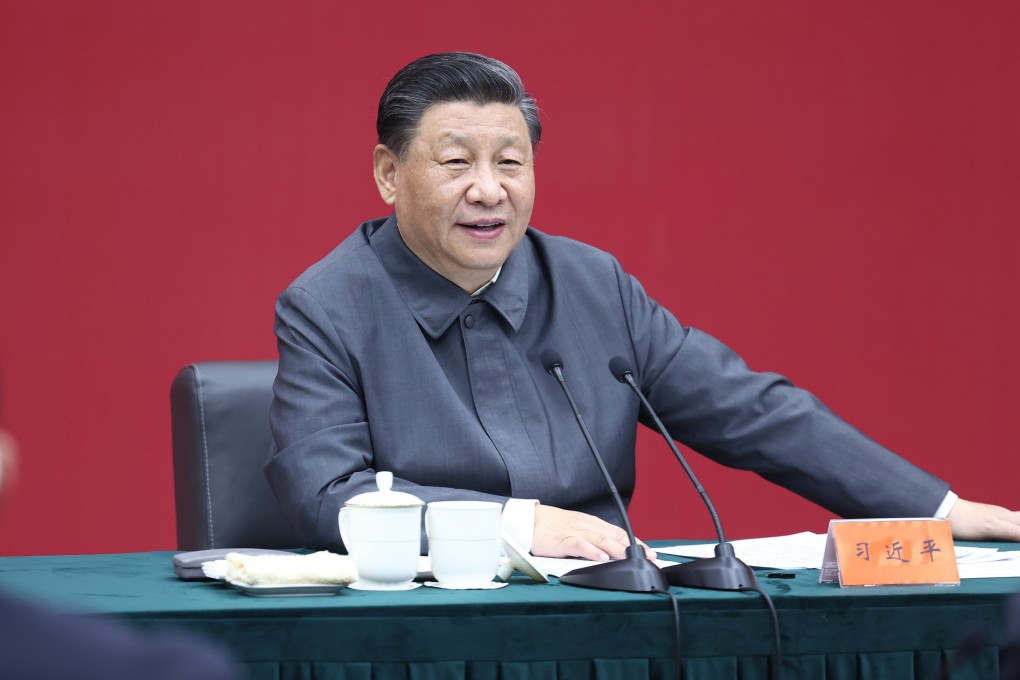Editorial | Essential for Hong Kong to strike balance as Xi Jinping digs in on zero-Covid
- Words of Chinese president do nothing to raise hopes of an early reopening of the border with Hong Kong, which strives to remain an international finance hub

It seemed unlikely not long ago, when China had long brought mass Covid-19 outbreaks under control, that it would again become a pandemic hotspot. The rapid spread of the Omicron variant changed that. How much so was underlined by President Xi Jinping’s rallying speech to the country’s leaders this week in defence of the handling of the Shanghai outbreak.
The resurgence of the pandemic has put China under pressure over its zero-Covid strategy. State media have consistently defended it. Xi instructed officials and cadres to stand firm behind the policy. The country’s commercial capital and its 25 million residents remain under lockdown after more than a month. Such draconian measures are expected to slash economic growth figures for April and even combine with the wider pandemic and Ukraine war to contribute to global stagflation. They do nothing for Hong Kong’s economy.
A statement issued after the meeting articulated the concerns that drive unwavering adherence to “the general policy of dynamic zero-Covid”. Citing a huge population with a large ageing component, unbalanced regional development and a lack of medical resources, it said relaxing controls would cause a large outbreak and many deaths, seriously affecting socioeconomic development and public health and safety. It comes down to concern for social and political stability.
The Shanghai lockdown has exposed unpreparedness that can exacerbate economic implications. Residents’ complaints over the weeks include food shortages and difficulties getting medical treatment. China’s population centres are so diversified that one size does not fit all when it comes to being prepared. Local governments cannot therefore be complacent about ensuring logistical support for daily necessities and livelihoods. If outbreaks continue to spread, China will need to rely on implementation at the local level.
The unequivocal reaffirmation of the dynamic zero-Covid approach does nothing to raise hopes of an early reopening of the border with Hong Kong. The city’s pandemic controls, in particular a week’s quarantine for inbound travellers, complement the national effort – at the expense of its role as an international finance hub. Under “one country, two systems”, with a new administration taking over in less than two months, it has to be a priority to strike a balance to restore connectivity fundamental to Hong Kong’s standing.
